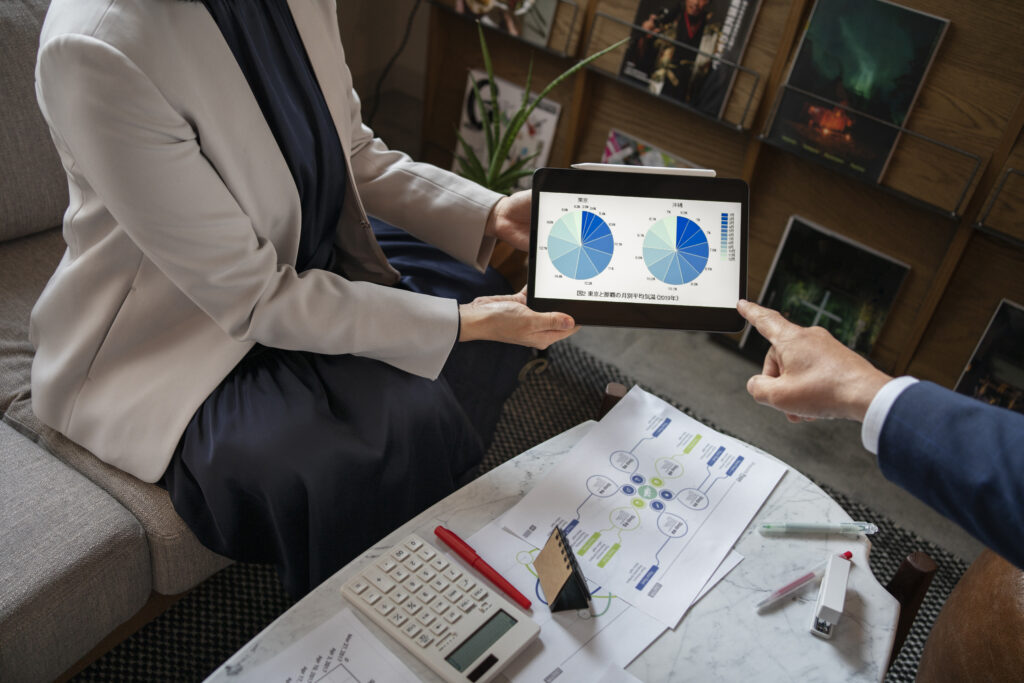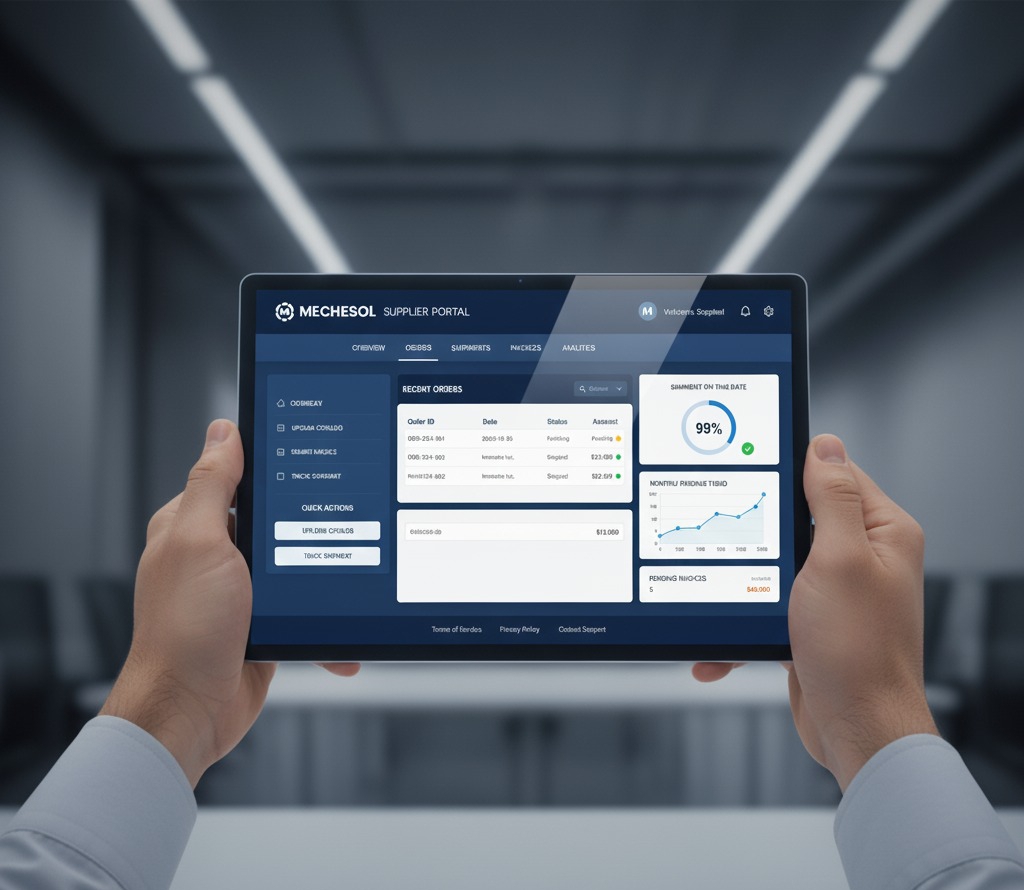The New Currency of Collaboration
Effective Supplier Relationship Management (SRM) is no longer just about cost savings. For decades, procurement was measured by the percentages saved per contract. This old, transactional model is now failing.
As global volatility increases, what matters most is not the lowest bid but the strength of the relationship behind it. When logistics slow and materials fluctuate, success depends on supplier collaboration.
At MECHESOL, we see first-hand that resilient supply chains are built from trust, not just contracts. The future of procurement is not transactional; it is a strategic SRM model that is data-informed and human-centered.

1. The Legacy of Transactional Procurement
For many organizations, procurement remains a tactical functi
on, negotiating prices, issuing POs, and chasing deliveries. This approach was born in an era where predictability ruled and volatility was an exception.
In the modern landscape, that model collapses quickly.
- Price-based sourcing amplifies risk during material shortages.
- Rigid contracts hinder adaptation during disruptions.
- Lack of visibility leads to surprise failures in deeper tiers.
A transactional mindset optimizes for efficiency, but it sacrifices agility and innovation, the two ingredients needed for growth in volatile times.
2. The Shift to Strategic Supplier Relationship Management (SRM)
Strategic SRM is a complete mindset shift. It moves the focus from “what we buy” to “who we build with.”
This approach aligns suppliers as partners in innovation, not just as vendors in a bidding war. It creates shared accountability, long-term value, and mutual resilience. This procurement strategy involves three key principles:ree key principles:
a) Partnership, Not Policing
Suppliers are collaborators in solving complex problems, not just entities to be audited. Strategic SRM focuses on co-development and joint problem-solving, not post-failure blame.
b) Transparency and Shared Data
Real SRM operates on visibility. Suppliers are granted access to forecast data, performance dashboards, and even early R&D insights, enabling proactive alignment.
This transparency builds trust and more importantly, eliminates surprises.
c) Performance Through Collaboration
Instead of annual, penalty-based scorecards, modern SRM relies on continuous improvement. This includes integrated supplier metrics, feedback loops, and co-created KPIs.
3. The 5-Stage Framework for Strategic SRM
At MECHESOL, our Supplier Relationship Management (SRM) framework is a five-stage system designed to turn supplier relationships into innovation engines.
| Stage | Description | Objective |
| 1. Segmentation | Categorize suppliers by strategic impact and business dependency | Focus resources where they matter most |
| 2. Evaluation | Assess quality, reliability, ESG compliance, and innovation potential | Build factual performance baselines |
| 3. Collaboration Design | Create joint projects, open innovation, or shared R&D | Build joint value |
| 4. Governance Setup | Define escalation routes, meeting cadence, data-sharing terms | Maintain discipline and transparency |
| 5. Growth and Renewal | Regularly review performance, investment returns, and relationship health | Ensure continuous value creation |
This framework redefines procurement as a relationship ecosystem, not an administrative process.

4. Technology: The Enabler of Modern SRM
Digital platforms now amplify SRM with data intelligence, but technology alone cannot fix poor relationships.
At MECHESOL, we leverage:
- Supplier Portals: Unified dashboards for performance visibility and compliance tracking.
- AI Risk Engines: Predictive analytics that highlight potential supplier distress before disruption.
- Collaboration Hubs: Shared digital workspaces where suppliers and MECHESOL engineers co-design solutions.
However, even the most advanced portal fails if the underlying culture does not promote openness and mutual respect. The technology is the stage, people remain the actors.

5. Case Study: From Supplier to Co-Innovator
This is strategic SRM in action. A few years ago, MECHESOL worked with a polymer manufacturer on simple components. The supplier had strong technical skills but lacked collaborative exposure.
Instead of keeping them at arm’s length, we invited their engineers into the early design stage of a new project.
- The supplier proposed a new material blend that reduced molding defects by 15%.
- MECHESOL responded with rapid DFM (Design for Manufacturability) iterations.
- Together, both companies co-filed a joint process patent.
What began as a transactional relationship evolved into a strategic sourcing alliance. This is the transition from compliance to collaboration.
6. Leadership Principles for the Next Generation of Procurement
Evolving your SRM is a mindset transformation, not a software update. Here are five leadership principles from our experience:
- Measure Relationship Health, Not Just Cost: Add KPIs like a trust index, innovation input, and responsiveness.
- Invest in Joint Learning: Invite key suppliers to your internal training, technical workshops, and process audits.
- Reward Transparency: A supplier that discloses a capacity issue early is more valuable than one who hides it until failure.
- Cross-Functional Ownership: Procurement, quality, and engineering must co-own supplier performance.
- Think Long-Term: True SRM builds equity in innovation, reliability, and reputation assets that don’t show up in quarterly cost savings.
7. The Future of SRM: Data, Trust, and Decentralization
By 2030, Supplier Relationship Management (SRM) will evolve into a network-driven ecosystem. It will be powered by blockchain traceability, AI-based collaboration scoring, and autonomous contracts.
Suppliers and OEMs will interact via transparent, distributed ledgers. AI will analyze collaboration data to recommend trustworthy and innovative partners. But technology will only enhance, not replace, the wisdom of human collaboration.

Partnership is the New Procurement
Procurement is no longer about the lowest price; it is about the highest alignment. In a connected world, your suppliers are extensions of your organization’s DNA. The companies that thrive will be those who build ecosystems, not just supply chains.
MECHESOL helps global manufacturers establish structured SRM programs that integrate collaboration, digital transparency, and measurable innovation.
Let’s turn ideas into impact with the right strategy behind them.
For product development solutions:
📩 services@mechesolco.com
Build your entrepreneurial mindset with MESP:
📩 mesp@mechesolco.com
🌐 Explore more at www.mechesolco.com



